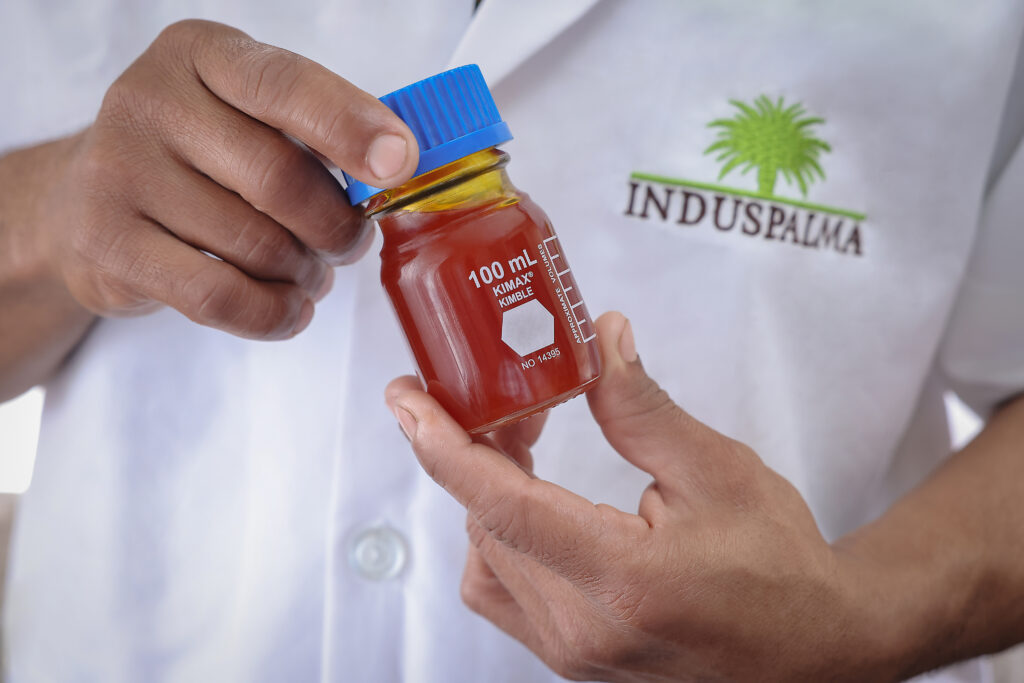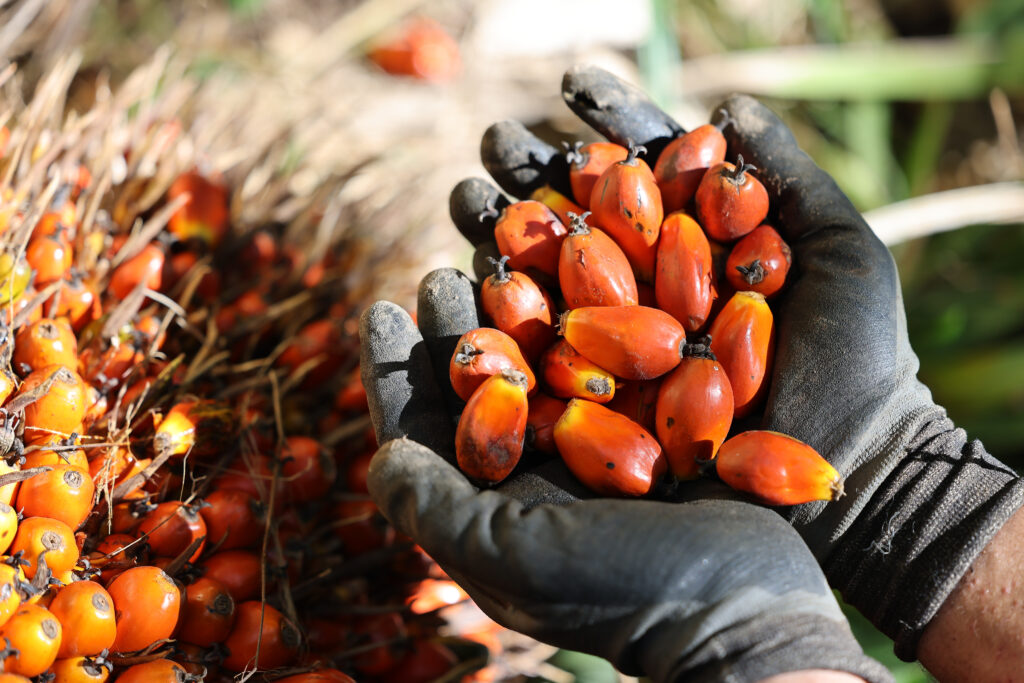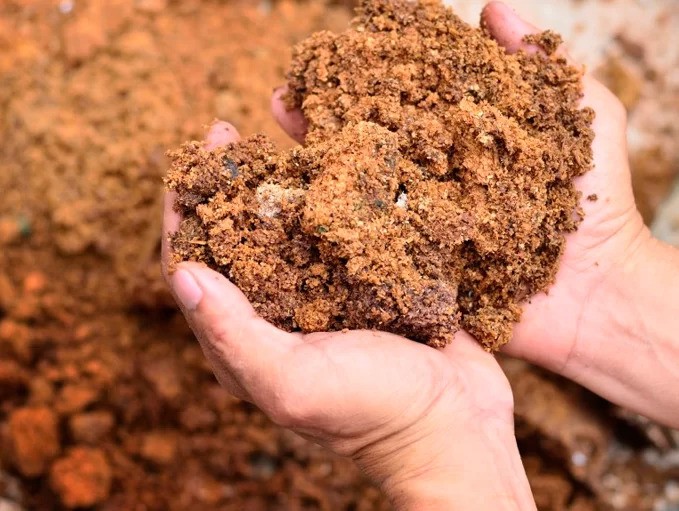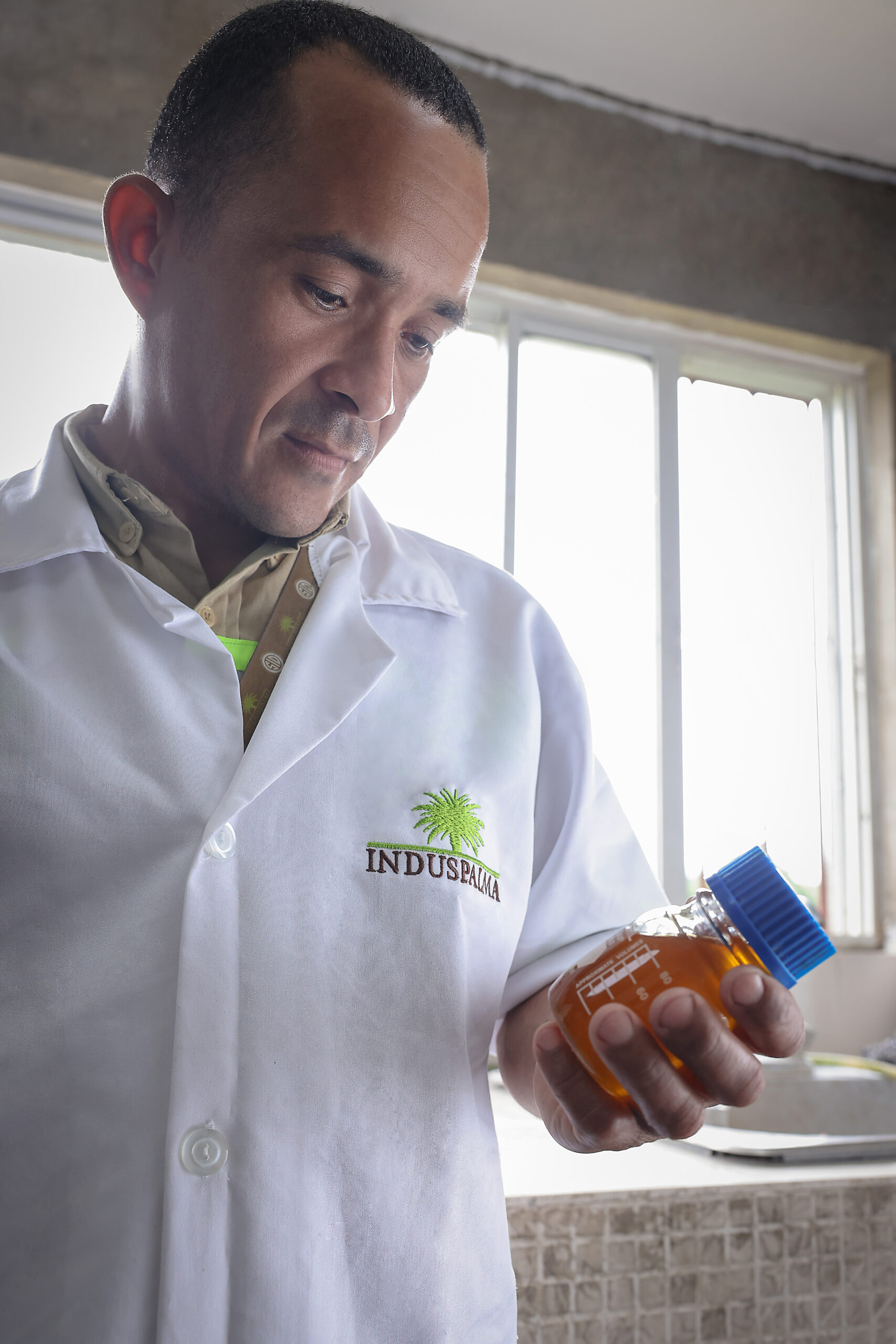The Caribbean’s most ambitious vegetable oil production project
Induspalma’s plantations currently exceed 6,000 hectares and are located in the provinces of Monte Plata and Hato Mayor. The different agro-industrial processes generate more than 600 jobs, benefiting hundreds of families and impacting the socioeconomic development of dozens of communities in that region.
The project’s culmination was preceded by several years of studies by specialists from different countries, who considered every detail of its feasibility and environmental impact.
Expert opinion classifies Induspalma’s plantations (located at 18° North Latitude), as well-structured production units with an acceptable degree of competitiveness. Induspalma’s plantations are at the level of world producers. All its industrial processes, following the strictest environmental conservation standards, have earned the company several awards.
Well-structured production units
At Induspalma Dominicana, we take pride in our well-structured production units, dedicated to the sustainable production of palm oils. Oil palm is the heart of our operations and represents our commitment to quality and sustainability. This crop, which is perfectly adapted to the climatic conditions of the Caribbean, allows us to reduce dependence on imports and position the Dominican Republic as an important producer of high-quality edible oil.
Learn about our industrial process
Our industrial palm oil extraction process is based on six essential steps, which ensure maximum efficiency and quality at each stage:
Planting and Cultivation
The first phase begins with the selection of high-quality seeds and their planting in specialized nurseries. Once the seedlings reach the right size, they are transplanted to our fields where they receive careful agronomic management to ensure optimal growth.

Harvesting
Oil palms begin to produce fruit approximately three years after planting. Harvesting takes place when the fruit clusters have reached optimum ripeness, ensuring maximum oil content. This step is crucial since the quality of the oil depends largely on the time of harvest.

Sterilization and Detachment
The freshly harvested fruit clusters are transported to the processing plant, where they undergo steam sterilization. This step facilitates the detachment of individual fruits from the bunches, the separation of the oils, and helps destroy microorganisms that could affect the quality of the oil.

Digestion and Pressing
The sterilized fruits undergo a digestion process, where the oleaginous cells are broken to release the oil. The digested mass is then mechanically pressed to extract the crude palm oil. This crude oil contains a mixture of water, solids, and oil. The kernels from which the palm kernel oil will later be obtained are also separated.
Clarification and Purification
The oil obtained from the fruit during pressing is subjected to a clarification process to separate solids and residual water. This is achieved by sedimentation and centrifugation. The purified oil is stored in special tanks before being sent to the refining stage, where the remaining impurities are removed, and the final product is prepared for the market.
Pressing and filtering of palm kernels
The separated kernels are mechanically pressed to obtain kernel oil and then purified by a filtering process. The purified oil is also stored in special tanks before being sent to the refining stage, where the remaining impurities are removed, and the final product is prepared.
Main Products
Palm Oil
Factsheet
Palm Oil
Palm oil is Induspalma’s main product. Extracted from the pulp of the oil palm fruit, this oil is known for its versatility and wide application in the food and cleaning industry. It is used in margarines, bakery products, confectionery and processed foods. Our palm oil is distinguished by its high quality and commitment to sustainability.

Palm Kernel Oil (PKO)
Factsheet
Palm Kernel Oil (PKO)
Palm kernels are another valuable product obtained from the fruit of the oil palm. It consists of the seeds or almonds of the palm, which are rich in oil and protein. Palm kernel oil, extracted from these kernels, is similar to coconut oil and is used in food, cosmetic, and pharmaceutical products.

Palm Kernel Cake (PKC)
Factsheet
Palm Kernel Cake (PKC)
Palm kernel cake, or meal, is a by-product of the palm kernel oil extraction process. It is the solid residue that remains after the extraction of oil from palm kernels. This product is highly valued in the animal feed industry, as it is a rich source of protein and fiber, ideal for the manufacture of concentrates for livestock and poultry feed. Palm kernel cake contributes to more sustainable agriculture by reusing waste from the oil extraction process.

Uses of palm oil
Palm oil is valued for its high content of antioxidants and vitamins, such as vitamin E, and for being a source of essential fatty acids. Its versatility and production efficiency make it a key ingredient in numerous industrial and commercial applications.

Biodiesel, Industrial Lubricants, plasticizers, candles, resins, pencils, paints, and Chemical Products.